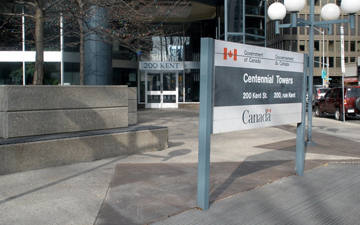Tax Court of Canada to prioritize sittings for summer reopening

17-point prioritization plan detailed by Chief Justice Eugene Rossiter
OTTAWA, May 19, 2020 – As he plans for a summer reopening of the Tax Court of Canada, Chief Justice Eugene Rossiter has presented a 17-point prioritization plan to Canadian tax accountants and lawyers, sketching a rough timeline for sittings, motions, case management and more. As detailed by Canadian Accountant, the Chief Justice has presented summer reopening pandemic scenarios, but all sittings of the Tax Court of Canada from June 2020 to July 3, 2020 have been adjourned or cancelled. Closed in March due to the COVID-19 pandemic, the Tax Court is now looking at a proposed reopening in July or August 2020.
“We are in a very fluid situation,” Rossiter stressed in a live webinar presented late last week by the Canadian Tax Foundation. During the live Zoom meeting, the Chief Justice took anonymous questions from tax accountants and lawyers, some of which will be summarized in a future article. Rossiter explained that the Tax Court’s reopening depends upon the Courts Administration Services (CAS) — which provides staffing, security, facilities, and IT services — and the chief administrator of CAS reports not to the Tax Court but to the Ministry of Justice.
“We have to adjust as and when required and we will adjust,” said Rossiter. “Everything here is presently a work in progress.” The Chief Justice then presented a 17-point list of decisions made by the Tax Court, which we have summarized below (some points have been combined), mostly in the order in which they were presented:
Duty Judges
To deal with the backlog of hearings, there will be two duty judges — one bilingual and one unilingual — on a weekly basis when the Court returns to operations. This will continue until at the new year.
Additional Sittings
Additional sittings will be added to all judges’ dockets between September and December 2020 and longer if necessary.
Locations of Sittings
Sittings for the immediate future — at least until the new year and possibly longer — will be limited to the Tax Court’s largest-volume centres: Vancouver, Calgary, Edmonton, Toronto, Hamilton, Ottawa, Montreal, Quebec City, and Halifax. Every sitting week that is established will be subject to court availability. (If necessary, for sittings scheduled for Toronto, parties will be asked if they wish their hearings to be conducted earlier in other locations.)
Sittings will be assigned to judges to effect the least travel possible. The Tax Court will be divided into four regions: West (Vancouver, Calgary, Edmonton); Central (Toronto, Hamilton, Ottawa); Quebec Region (Montreal Quebec City, Ottawa); and Eastern Region (Halifax). Judges will be assigned to sit accordingly.
Scheduling of Sittings
Scheduling for judges will involve back-to-back sittings and possibly back-to-back-to back sittings. Sittings will take place throughout the remainder of the summer. There will be no court closure between July 15 and August 15th, dependent upon staffing. Sittings will take priority over any and all planned holidays.
Prioritization
When sittings resume, the following scheduling will be prioritized:
- Trials that have already commenced will continue immediately.
- General Procedure cases ("Generals") adjourned during the closure will be given priority.
- Generals will be given priority over Informal Procedure cases ("Informals") as Informals are easier to schedule.
- Informals that deal with independent contractor versus employee, or child tax benefit, or GST credits, or R&D tax credits, or disability tax credits will be given priority.
- Availability will not be a priority except in exceptional circumstances.
Motions
Motion days will be suspended indefinitely. Motions will be heard in writing with the consent of the parties. If the parties don’t consent to have a motion heard in writing, it will be put in a queue for hearing.
Case Management
A list of all case management conferences, pre-trial conferences, and conference calls that have been cancelled during the closure period will be developed. Each judges will be made aware of missed conferences and calls and will be rescheduling calls immediately without exception upon reopening.
Reserves
Upon reopening, reserves will be given priority to get out to the litigants, as judges have been and continue to work on their reserves.
Practice Direction
Practice directions and notices to the profession will continue to be posted and be as informative as possible.
Legislation Deadlines
Amendments are expected to be made to the Income Tax Act, the Excise Tax Act (and any other legislation over which the Tax Court has authority) to adjust hard deadlines in the statutes to allow access to the taxpayer to the Tax Court of Canada.
Health and Safety
Procedures for the handling of exhibits and documents during trials will be provided before the courtrooms return to sitting. Guidelines may be adjusted for the health and safety of attendees. All courtrooms will be configured for the protection of health and safety for all, including plexiglass screens, and a variety of court aspects.
Modernization/Digitization
In the future, the Tax Court will hold, where possible, video conferences and virtual hearings, where possible, for case management conferences, status hearings, applications, and motions, where there are no witnesses. The Tax Court will be aggressively moving forward to digitize all actual active files within six months.
Canadian Accountant will provide more information from the webinar in future articles. Please check back with us regularly or subscribe to our weekly newsletter review. Colin Ellis, contributing editor to Canadian Accountant.









(0) Comments